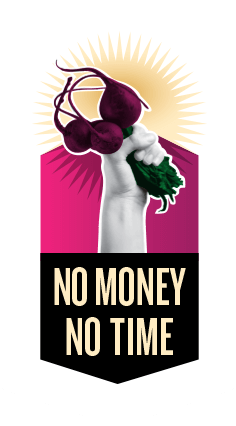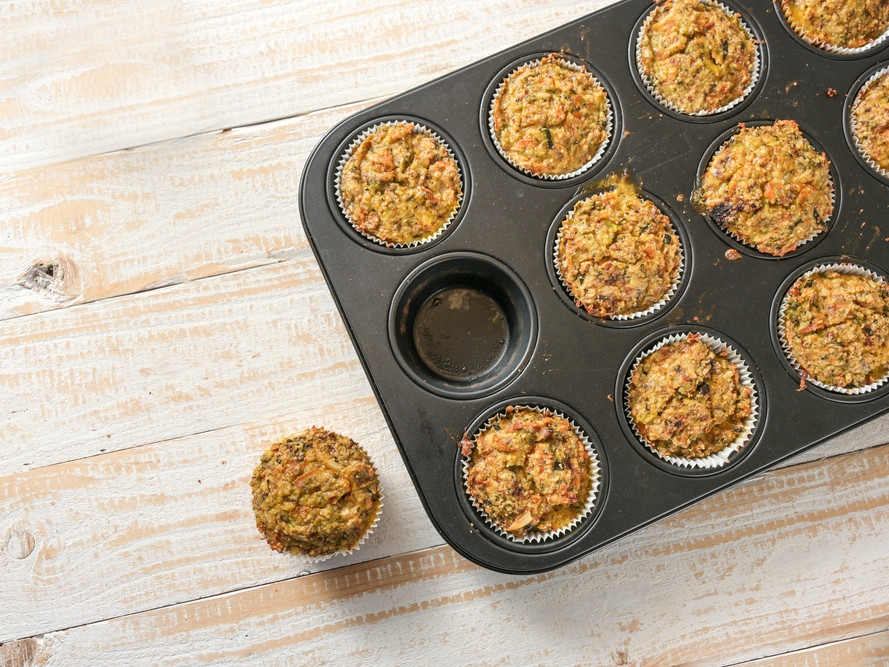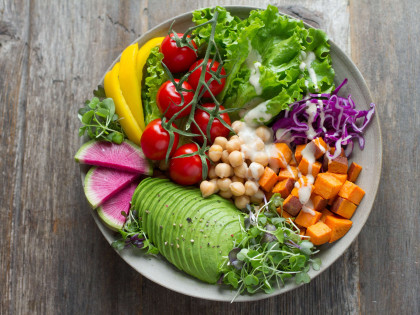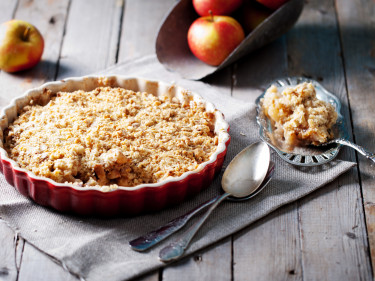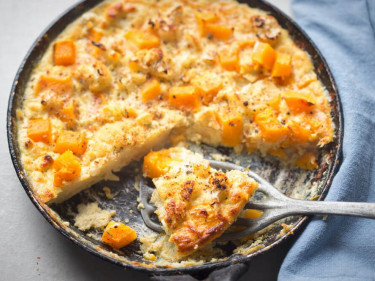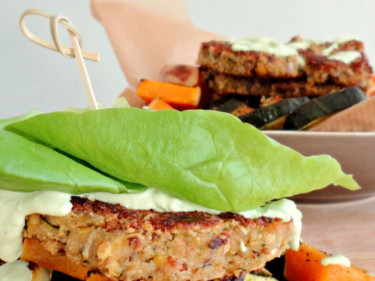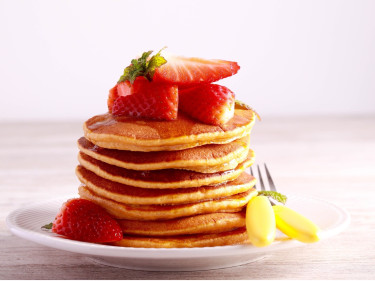Serves = 10 muffins
- ¾ cup (115g) wholemeal plain flour
- ½ cup (40g) rolled oats
- 1½ tsp baking powder
- 1 tsp ground cinnamon
- ½ tsp ground cardamom
- ½ tsp ground ginger
- ¼ tsp ground allspice
- ¼ tsp ground nutmeg
- 1 overripe banana
- 1 egg
- 30mL reduced fat milk
- 30mL extra virgin olive oil
- 1 cup (130g) raw sweet potato

